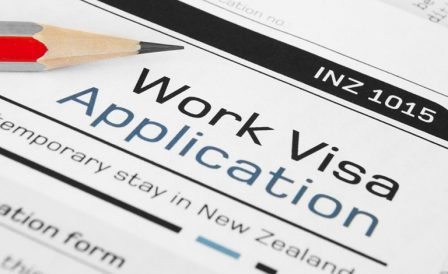First of all, we want to mention, that Kiwi Education is not a recruitment or job offering agency. However, we often hear questions about the process of finding a job in New Zealand. Second of all, our licensed immigration advisor, Yana Gild, may help you with getting a work visa.
So, the most popular questions regarding a job in New Zealand are:
- «Is it really possible to find a job in New Zealand after training?»
- «How easy is it to find a job after studying?»
- «What kind of salary can I expect? And will it be enough for life and getting residency?»
Honestly, no one can guarantee you a job, no matter what advertising articles may tell you. Moreover, it is completely independent of the country of residence. Even at home in their homeland it is extremely difficult to find a job for fresh graduates without experience. What’s more, when you are in a country where the spoken language is not your native language, you should be aware of all possible difficulties. Nevertheless, as our experience shows, everything is possible. But let’s deal with your chances in order.
Content:
- Getting of work visa
- Where to search vacancies in New Zealand?
- How to get a job?
- What’s important for a New Zealand employer
- Salary in New Zealand
- Employment statistics
How to get a work visa
Let’s begin with the most important thing – visa. To be able to work in New Zealand, you must have an appropriate status:
- Citizenship. You may expect this one, if you live in New Zealand for at least 5 years as a resident.
- Residency. You may obtain New Zealand residency through different pathways. More details read in our article “How to immigrate to New Zealand”. The most popular was is professional immigration. That means you already have a job in your professional sphere in New Zealand.
- Work visa through an employer. The name of this visa is Accredited Employer Work Visa. The employer must be accredited by government to hire foreign specialists. The support of the company interested in you as an employer is the crucial factor.
- Partnership Based Work Visa. If your partner / spouse has a work visa or study at a university on a particular program, then you may have the right to obtain partnership based work visa.
- Post Study Work Visa. Having finished your 1-3 years professional training of particular level, you will have the opportunity to apply for Post Study Work visa valid for 1, 2 or 3 years, depending on your program. Read more details in our article “Post Study Work Visa”.
These are main options of obtaining a work visa for foreigners. Therefore, briefly saying, the way to New Zealand looks next:
- Plan A. You look remotely for an accredited employer, who will agree to help you with processing the work visa. It’s quite difficult, because the majority of companies prefers to hire those who are already in New Zealand and already have work visa. Since all the accreditation process, visa assistance, awaiting for the visa approval cost money and time for an employer, they often don’t want to get into it. Moreover, they don’t fully understand, how you will adapt at your new place. However, every year high-qualified and valuable specialists succeed in finding such a motivated employer. Your professional and self-representing skills are very important. And a bit of luck, of course.
- Plan B. If you couldn’t find the job remotely, you may come to New Zealand for an English Language course. And start job finding process being already here. It doesn’t remove all the risks for an employer, however slightly increases your chances.
- Plan C. If you need more reliable way, then you might want to consider Professional Education (immigration through study). After completing your program, you will obtain the work visa. Thus, the list of potential employers significantly widens. Because once you already have work visa, you’re no longer restricted by accredited employers only. So, having the work visa greatly enhances your chances.
Overall, one way or another finding a job is a must. And it’s important to know how to do it right. So, New Zealand employers react positively on your CV and invite you for a job-interview. Then you go through the interview impeccably and finally get your work contract. Next, read about how to search for a job properly.

Where can I search for vacancies in New Zealand?
The most common way to find a job is to monitor jobs on websites:
- trademe.co.nz and seek.co.nz – are the most popular sites for job searches.
- workhere.co.nz and workingin-newzealand.com – sites for foreign applicants. Employers who post jobs on these sites are usually very familiar with the process of hiring a foreign specialist.
- nz.gradconnection.com – is an excellent resource for a job search, if you just graduated and do not have much work experience.
- sjs.co.nz– here you will find job ads for current students
- gradnewzealand.nz – here you can find an internship for and work for students.
You can also contact a recruiting company. There are a large number of them in New Zealand and services for applicants are free. On the Careers New Zealand website you will find a detailed list of such agencies. You can work with more than one company. However, you should keep in mind, that to the employer you may seem unprofessional if several agents represent you for the same job. The labour market in New Zealand is small and it is important to remember who you contacted about work, when and what exactly was said.
How to get a job?
You can assess prospects of your job in New Zealand also on the website Careers New Zealand. We recommend starting exactly from this. Also there you can find CV samples and many other useful information for employment.
Next, you may look through the information on the official INZ website on the matter of finding and applying for job. There are many tips, recommendations and useful links.
You can attend seminars where you will learn how to search for work in New Zealand more thoroughly. For example:
- New Kiwis, offline seminars in Auckland (if you have a working or resident visa)
Training is conducted by highly qualified specialists who will teach you all the intricacies of employment in New Zealand:
- Developing of an effective strategy for a job search
- Writing a professional resume
- How to correctly answer questions during an interview
Finding a job while studying
Of course, the hardest part of employment is finding your first job. Without local experience and knowledge of how New Zealand companies operate, your chances are quite low. Thus, if you’ve already made it to New Zealand for study, we recommend taking any available opportunity while also continuing your search for your dream job. This applies to professionals of all backgrounds. Don’t limit your job search to your narrow specialization. Think about which of your skills and knowledge can be useful in different fields. Then confidently include them in your job search on vacancy websites.
Also, a volunteering experience can be a great advantage for your CV. New Zealanders highly value community support. Whether it’s helping clean up local parks, walking shelter dogs, or volunteering at a charity clothing center. In addition, you’ll make new connections, gain valuable experience, and receive meaningful references.
Moreover, working part-time during your studies is beneficial not only financially and for future job prospects but also for your psychological well-being and adaptation. You’ll feel much more confident knowing that you’re earning at least something, putting your skills to use, and remaining a contributing member of society.
Also, you may know more about intricacies of work and further immigration by profession on our website:
What’s important for a New Zealand employer
For all these years of our personal experience we can say that New Zealand’s employers look at applicants’ cases in this order:
- Visa
This is the first screening point. Most employers do not want to solve visa issues for employees, so they are looking for people with an already existing right to work. - Local experience and recommendations
This is a very important point. New Zealand employers want to be convinced that a person will be able to work in the local environment, that they have already passed the adaptation stage at the proper level and are ready to work. Therefore, we strongly recommend that our students seek work or volunteer for the duration of their studies. This helps a lot not only financially and psychologically, but also increases the chances of finding a permanent position in the future. - Professional skills
Opening positions in the company, employers want to see a person with certain clear skills. It is the availability of these skills and their correct formulation in your resume that will help to tip the scales in your direction. - Foreign experience
Of course, the knowledge and experience gained in your country will always remain with you and can play a positive role in finding a new job. Not all knowledge will be relevant and useful, but nevertheless. If you have experience working for international companies or participating in international projects, the better it is for you. - Personal attraction
In New Zealand, communication and personalities play a big role. Managers prefer to hire employees, with whom, in their opinion, it will be more comfortable for them to work. Thus, it is very important to be able to position yourself as a team player, even if you are a niche specialist. Most likely, you will work within a team and your ability to do so will be taken into account. - Prestigiousness of education
And only with all other data being equal with your competitors, in sixth place, the employer may look at the prestige of your education. And, perhaps, give preference to the qualification that is more highly ranked in New Zealand and in the world. In areas of the academic, scientific, medical, engineering and some other fields, the prestige of education will play a much more important role than others.

Wages in New Zealand
In 2024, the minimum wage is NZ$ 23.15 per hour.
- Graduates of a three-year Bachelor’s degree of the 7th level, earn approximately NZD $56,000 in the first year of work with an increase of up to NZD $73,000 in the third year.
- Graduates of one-year programs of the 7th level and above earn about NZD $60,000 in the first year with an increase to NZD $75,000 in the third year.
Of course, salaries can vary greatly depending on the sphere, the level of your skills, the ability to correctly represent yourself and other factors.
- A convenient tool for comparing conditions for graduates’ salaries.
- A common site for finding information about salaries and perspectives in specialities.
- Cost of living in New Zealand
Employment statistics
Now let’s look at the probability of finding a job with the right salary.
General data on unemployment
On the year of 2025, it is a slight economical downturn in New Zealand. And the unemployment rate is 5,1%.
You may look the detailed statistics on the official website.
Basic data on foreign graduates
In the first year after the completion of the 3-year Bachelor’s degree at the 7th level, about 22% of graduates continue their education, about 29% are employed, and about 45% return home or go to other countries. In the first year after the end of the annual programs of level 7 or higher, about 20% of graduates continue their education, about 60% of graduates find work, and about 20% leave New Zealand.
Basic data on local graduates
In the first year after the completion of a three-year Bachelor’s degree of the 7th level, about 37% of graduates continue their education, and about 57% are employed. In the first year after the end of the annual programs of level 7 or higher, about 13% of graduates continue their education, and about 82% of graduates find work.
For all questions, please contact Kiwi Education. We would be happy to help you.



